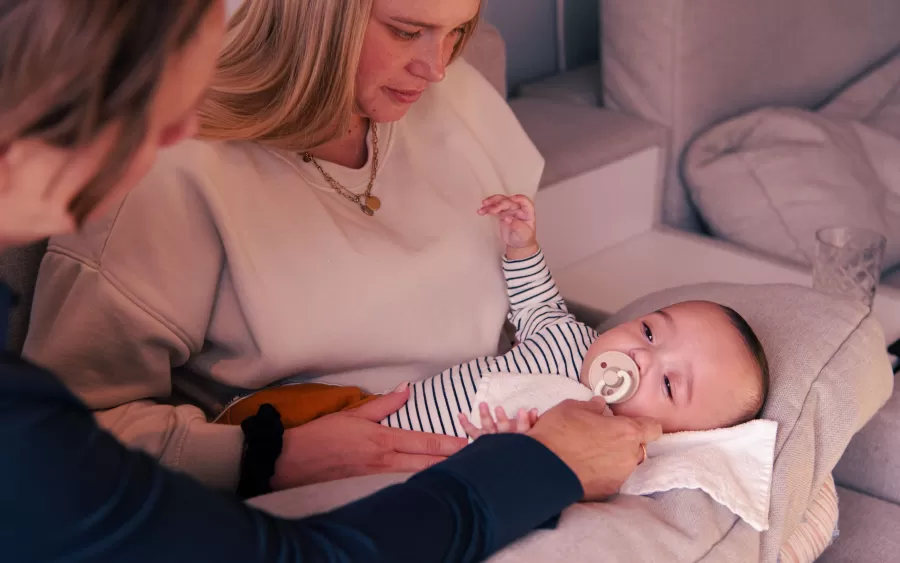TOP programme
The ToP programme supports you and your preterm child after discharge from the hospital, with the aim that you can support the early development of your baby with joy and self-confidence.
The ToP programme supports you and your preterm child after discharge from the hospital, with the aim that you can support the early development of your baby with joy and self-confidence.

You as parent(s) are the most important person(s) in your child ’s life. Therefore the bond between you and your baby is encouraged early on after birth. Physical contact and understanding the body language of your baby are very important in this process. Through skin-to-skin contact your baby can become attached to your scent, heart rhythm, voice and movements in a comfortable way. A preterm baby lets you know through its behaviour when s/he feels happy and how s/he likes to be supported or comforted best. A baby also makes all kinds of attempts to get a grip on what is happening, for example by sucking, holding on to something or by trying to use its feet for support. Once you are told how you can help your baby with these efforts to get more control, it may give you (both) a lot of satisfaction and joy. Many parents have the feeling that after coming home they must get to know their baby all over again. This is not so strange, because the baby itself must also adjust to the new environment. Moreover, now your baby can maintain its temperature and grows sufficiently, s/he is more focused on its surroundings. Your baby seeks a balance between its need for security and the curiosity of discovering the world around him/her. Changing diapers, feeding, cuddling, playing, or being walked in the pram are ordinary daily acti vities. However, sometimes these everyday activities can give preterm children more information that they can cope with at that time. It often happens that they are frightened more easily or are harder to comfort than babies born at term. It may also be that they have more difficulty in making contact, or in maintaining their attention. Parents are often tired or stressed after the preterm birth of their baby and everything that is involved. Then the unpredictable behaviour of their baby can cost a lot of extra energy. The ToP programme therefore supports parents at home, helping them to recognise their baby’s signals and how to respond in a positive way.
The ToP programme is made to fit the needs of the individual baby and gives continuation to the individual developmental care, which started in the incubator period. The ToP programme does not focus on the problems, but on the potentials that your child has, and the attempts that it makes to explore their environment and to adjust to it. The aim of the programme is that your child can participate in the activities that are important to him/her at that moment, in an active way, without stress. The paediatric physiotherapist from the hospital will explain the content of the ToP programme before you go home with your child. An experienced paediatric physiotherapist carries out the programme and visits you at home. S/he has followed additional training in the understanding of the ‘body language’ of young children. This body language consists of behaviour by which young children show their interests, potential and needs. Together you follow your baby’s behaviour: what is my child trying to achieve, what can my child do by itself, where does s/he need help and how can I give this help? The support that is given, does not consist of fixed ‘exercises’, but is determined by the choices that suit you, your child and your family.
The ToP programme is offered to: